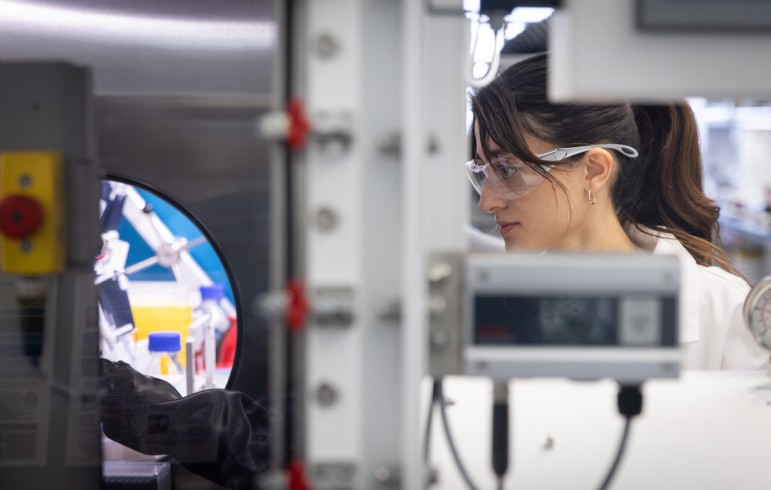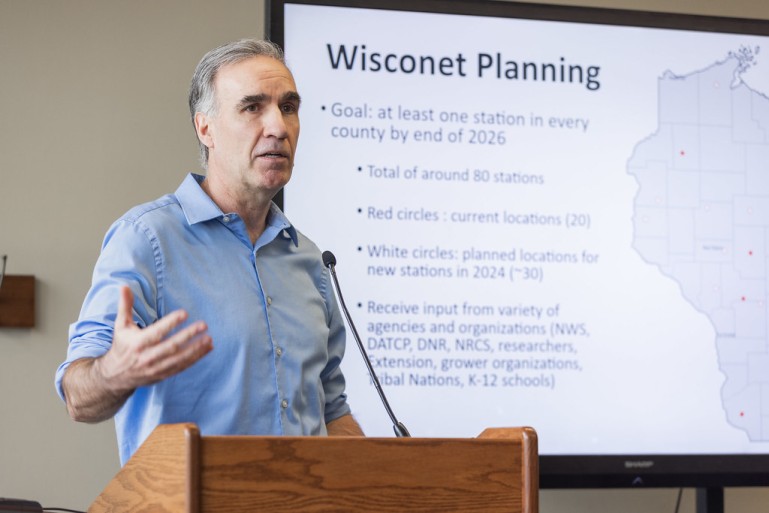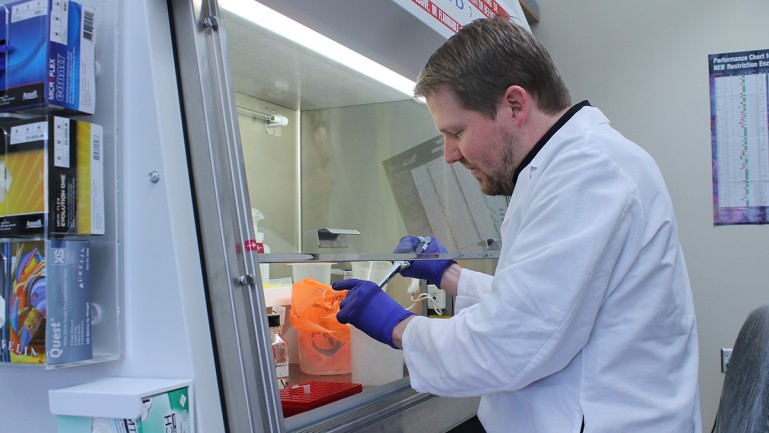Jordan Schmidt is a theoretical chemist who studies catalysis, alternative fuels, and carbon dioxide capture. He has been involved in restructuring the general chemistry program since the day he arrived, commanding a leadership position in general chemistry innovation.
For decades, phosphorous has accumulated in Wisconsin soils.
Eleven promising young members of the UW–Madison faculty have been honored with Romnes Faculty Fellowships.
Power Points recently sat down with Tyler Huebner, executive director of the renewable energy advocacy and education organization Renew Wisconsin, to talk about net metering and solar growth across the U.S., as well as to get his take on the future of the solar market in Wisconsin and beyond.
For decades, American energy companies have tried to persuade customers to use less energy. Using giveaways and various other financial incentives, utilities have promoted new light bulbs, miserly showerheads and smart thermostats.
At a Feb. 17, 2017, ceremony, College of Engineering Dean Ian Robertson honored 10 faculty and staff for their exceptional research, teaching and service. The award recipients include:
Byron Bird Award for Excellence in a Research Publication Recipient: David Beebe
These are some of the comments Cathy Middlecamp remembers hearing during her career in science at UW-Madison, where she was hired as a lecturer in 1979.



